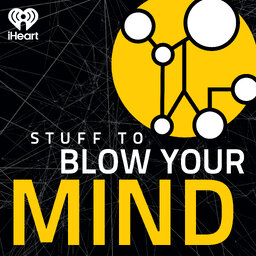From the Vault: Dreamfall into the Dark, Part 3
The wonders and terrors of the dreaming mind do not always flee completely with the dawn. At certain times and places in history, it seems that dreams suddenly ascend to new heights of cultural fascination. In this classic Stuff to Blow Your Mind series, Robert and Joe explore periods when the eye of culture fixes on the dream world. (originally published 06/22/2023)
In 1 playlist(s)
Stuff To Blow Your Mind
Deep in the back of your mind, you’ve always had the feeling that there’s something strange about re…Social links
Follow podcast
Recent clips

Crab Bag, Part 3: The Crab is a Lonely Hunter
55:55

Weirdhouse Cinema Rewind: La Loba (1965)
1:30:07

From the Vault: Mystery Cults, Part 4
1:00:23
 Stuff To Blow Your Mind
Stuff To Blow Your Mind